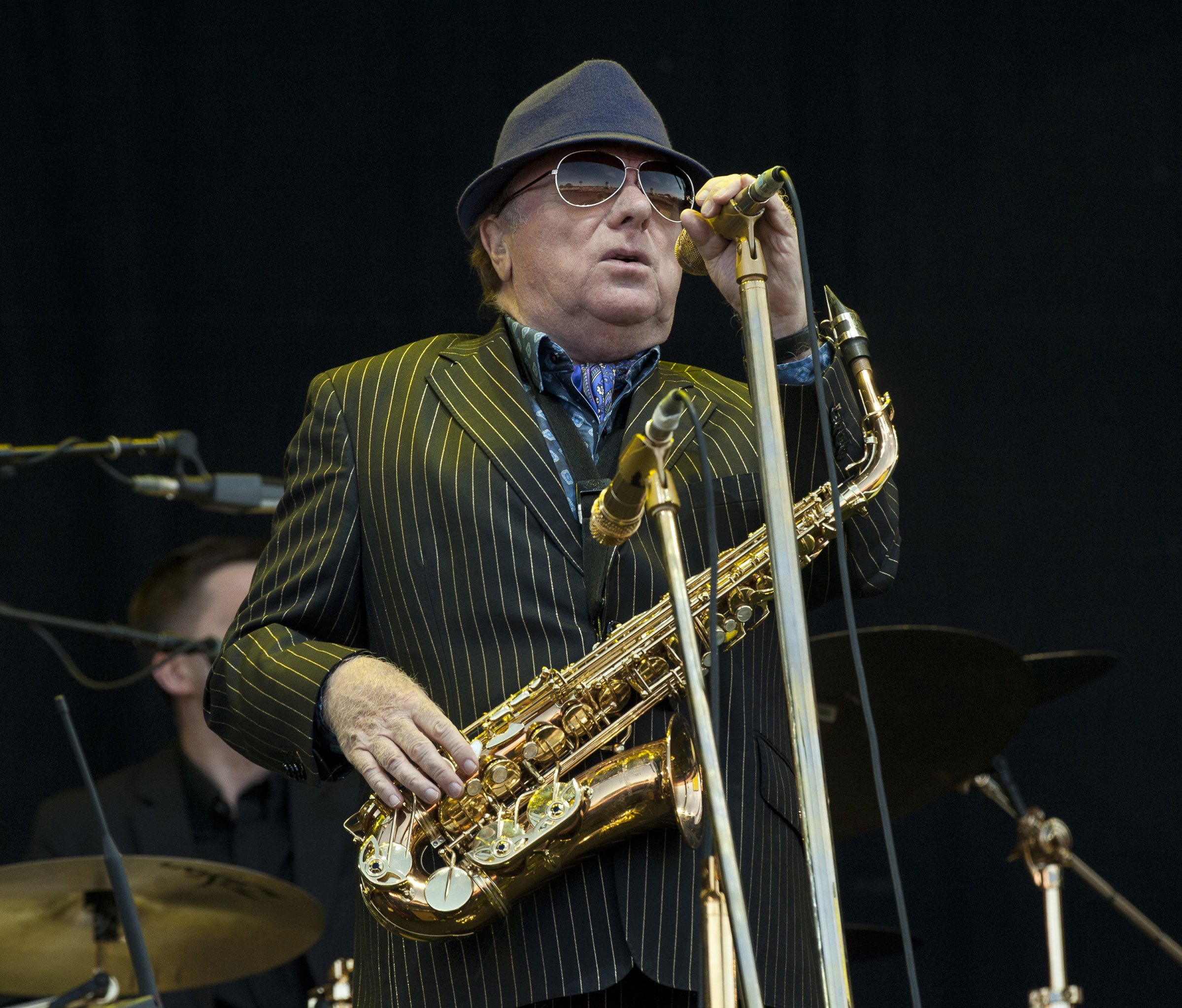
This November, Van Morrison celebrated the half-centennial of his album Astral Weeks, on which the Irish troubadour added his rousing high baritone to a watercolor landscape awash with genres so thoroughly blended it nearly rendered the idea of categorizing music obsolete. The golden anniversary of Morrison’s second album has been celebrated far and wide all year: retrospective appreciations have bloomed, and the delightful recent book Astral Weeks: A Secret History of 1968, by Ryan Walsh, connects the dots between that critically beloved release and the time Morrison spent in Boston a half-century ago.
Many artists would use a milestone like this to embark on a victory lap: add some bonus tracks or some remastering polish to the already existing work, then head out on a tour featuring re-creations of the studio tracks. But Morrison has been there and done that: Astral Weeks got the deluxe-reissue treatment in 2015, and he reworked the record at the Hollywood Bowl for the album’s 40th anniversary in 2008.
Instead, Morrison has continued to create even while he flicks at the past. Over the past 15 months, he’s released a string of albums that pay tribute to his own artistic roots; the newest, just released, is titled The Prophet Speaks. In September 2017’s Roll With the Punches, Morrison muscles through R&B classics like Sam Cooke’s “Bring It on Home to Me” and Ruth Brown’s “Teardrops From My Eyes” alongside a few Morrison originals. Versatile, which came out a year ago, is a love letter to pop standards in a jazz-combo package, with stripped-down, smoky-lounge versions of “Unchained Melody,” “A Foggy Day” and “Makin’ Whoopee.” And You’re Driving Me Crazy, released in April, continues Morrison’s jazz sojourn, with organist-trumpeter Joey DeFrancesco, who’s collaborated with jazz titans like Miles Davis, getting second billing and adding his sideman expertise to standards and originals–like a stretched-out version of the Astral Weeks shuffle “The Way Young Lovers Do” that spotlights Morrison’s scatting.
On The Prophet Speaks, Morrison’s fourth album of his recent run and 40th album overall, the focus shifts a bit. It’s nominally a blues record, although Morrison’s a generous enough musical thinker to expand the genre so that other ideas are allowed in. DeFrancesco is back, as is his guitarist Dan Wilson, and Morrison adds harmonica to a few tracks, including a strutting take on the John Lee Hooker side “Dimples” (1956) and a gently raucous version of Solomon Burke’s smash “Gotta Get You Off My Mind” (1965). Morrison’s voice is one of pop’s most recognizable instruments, and it still sounds like a siren call. His phrasing and interplay with his band indicate not just a studying of each song’s structure but a deep dive into their feelings as well.
The Prophet Speaks also contains six Morrison originals that reveal his close understanding of the blues as an art form. The lyrics strip down emotion to their essence, and they’re paired with deceptively simple chord changes that allow Morrison and his band to spin off in their own directions, singing and soloing as they remain locked in a groove. “Got to Go Where the Love Is” lets Morrison’s backing vocalists serve as angels on his soon-to-be-departing shoulder; “5am Greenwich Mean Time” gets its heat from DeFrancesco’s insistent keyboards, which balance out Morrison’s robust vocal.
The album closes with two originals that break slightly from the rest of the album’s tightly wound vibe, yet show where Morrison’s head is right now: “Spirit Will Provide” is a prayerful ballad that brings the otherworldliness of his past work into the mix, while the title track luxuriates in its late-night vibe, with DeFrancesco’s muted trumpet and Wilson’s acoustic guitar solo helping end the album on a pensive, faintly restless note. Even after so many decades, Morrison shows he’s capable of pushing forward while continuing to look back at his own influences.
More Must-Reads from TIME
- Inside Elon Musk’s War on Washington
- Meet the 2025 Women of the Year
- The Harsh Truth About Disability Inclusion
- Why Do More Young Adults Have Cancer?
- Colman Domingo Leads With Radical Love
- How to Get Better at Doing Things Alone
- Cecily Strong on Goober the Clown
- Column: The Rise of America’s Broligarchy
Contact us at letters@time.com